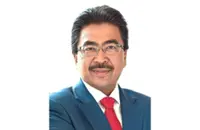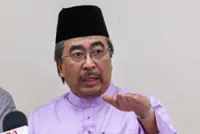KUALA LUMPUR: Malaysia is still short of achieving its 10% quota for women in the Armed Forces, according to Deputy Defence Minister Adly Zahari.
Speaking at the Dewan Rakyat, Adly noted improvements in areas like technology, such as cybersecurity, to increase female participation in the Armed Forces.
Follow us on our official WhatsApp channel for breaking news alerts and key updates!
Thank you for your report!





